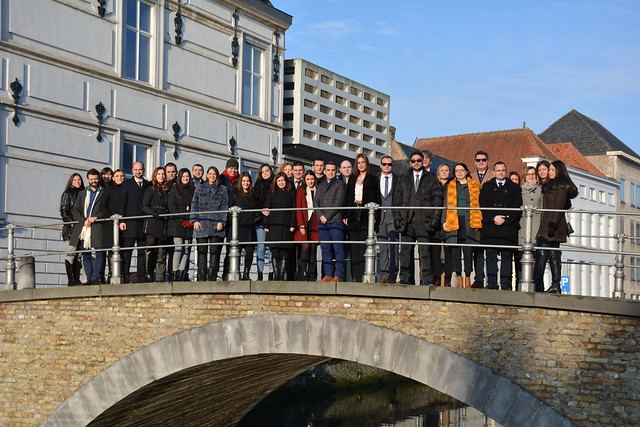
From 29 January to 9 February 2018, the College of Europe Development Office implemented a two-week training programme in Bruges and Brussels on "Public Administration Reform and EU Enlargement".
This programme took place in the framework of the EU-funded project "EU Scheme for Young Professionals in the Western Balkans" (www.eu4wb6.com), a project implemented by the British Council.
The course provided key information and skills to enhance knowledge and know-how related to the Public Administration Reform processes in the context of EU accession negotiations.
Thirty young civil servants attended this course (five from each of the following countries: Albania, Bosnia and Herzegovina, Kosovo[1], the former Yugoslav Republic of Macedonia, Montenegro and Serbia).
This intensive skill-oriented course included workshops, debates and discussions, practical exercises and role playing games. The participants also met peers and counterparts at the European Commission and the European Parliament during targeted study visits as well as Ms Genoveva CALAVERA RUIZ, Head of Western Balkans at DG NEAR; Ms Corina STRATULAT, European Policy Centre; and Mr Jeno CZUCZAI, College of Europe, EU Council, during a panel debate organised in Brussels on "Why Public Administration Reform matters".
For more information, please contact typhaine.rampillon@coleurope.eu.
coleurope.eu/tailormadecourses
All NEWS from the College of Europe Development Office
[1] This designation is without prejudice to positions on status, and is in line with UNSCR 1244/1999 and the ICJ Opinion on the Kosovo declaration of independence.
